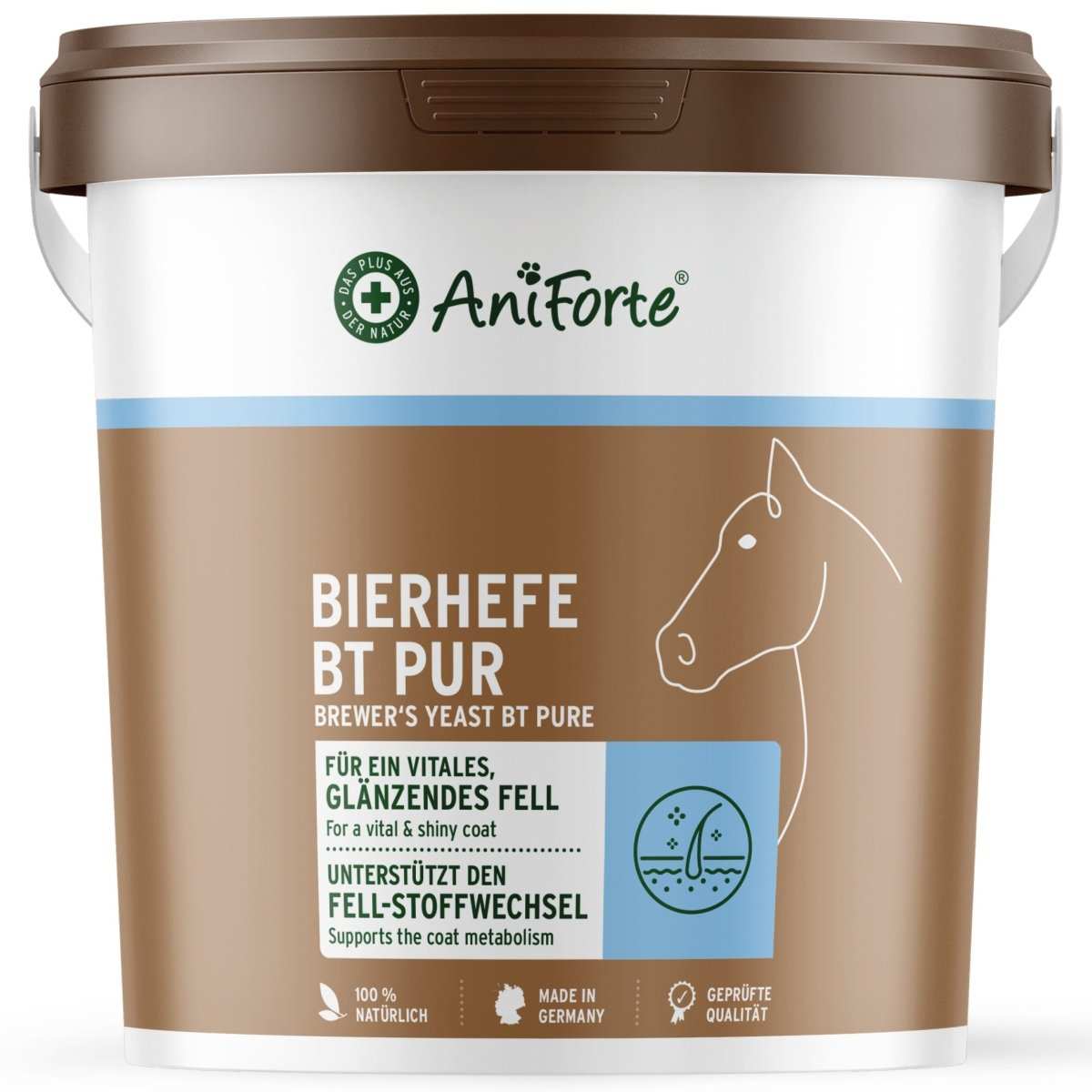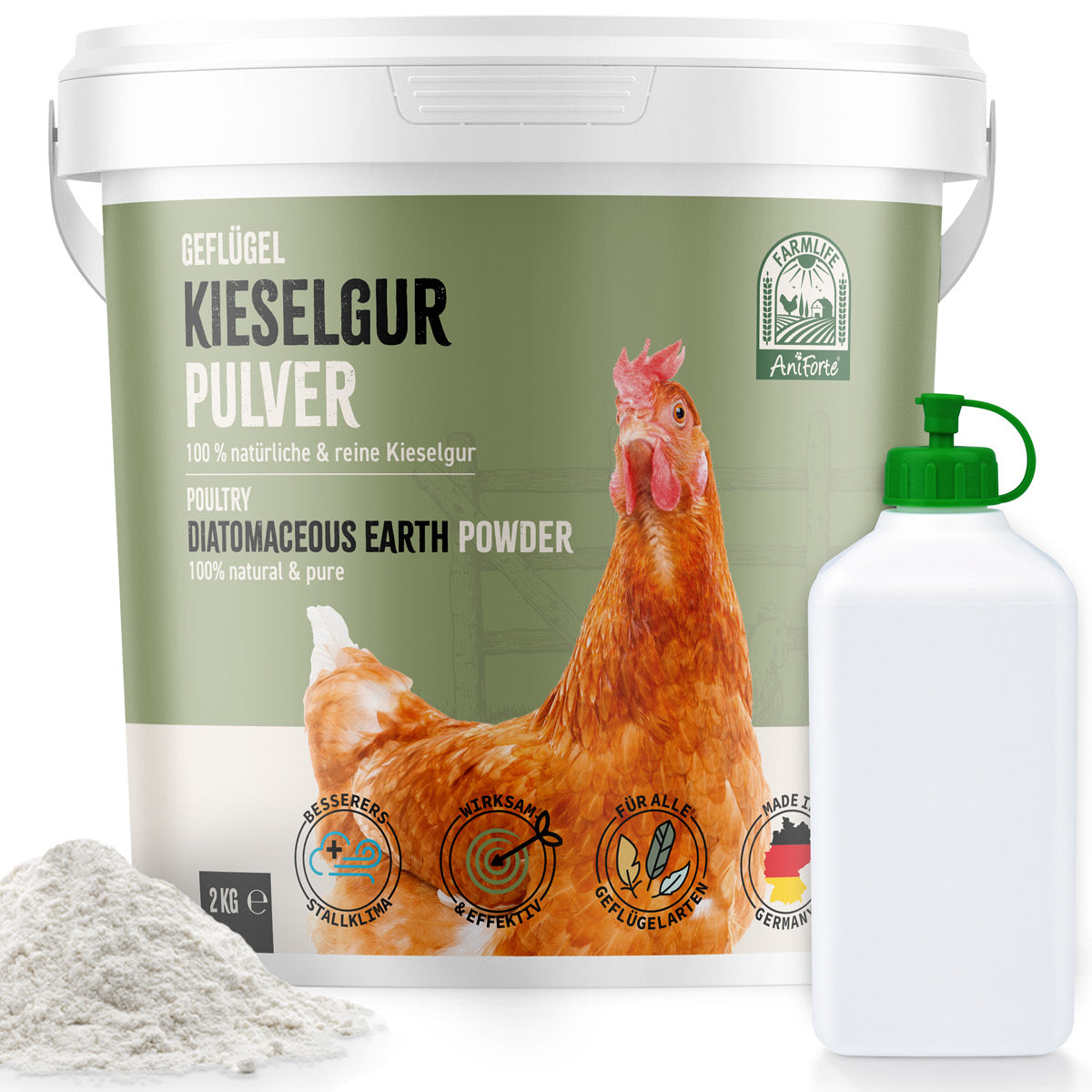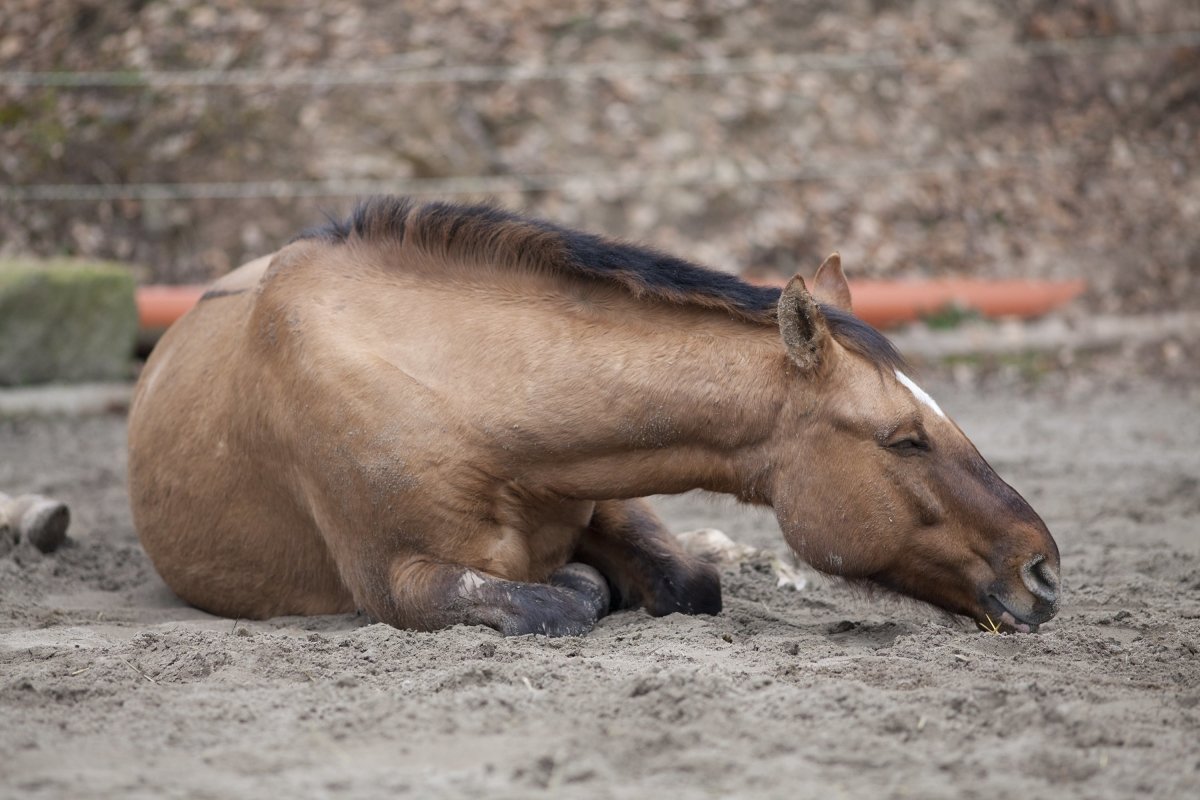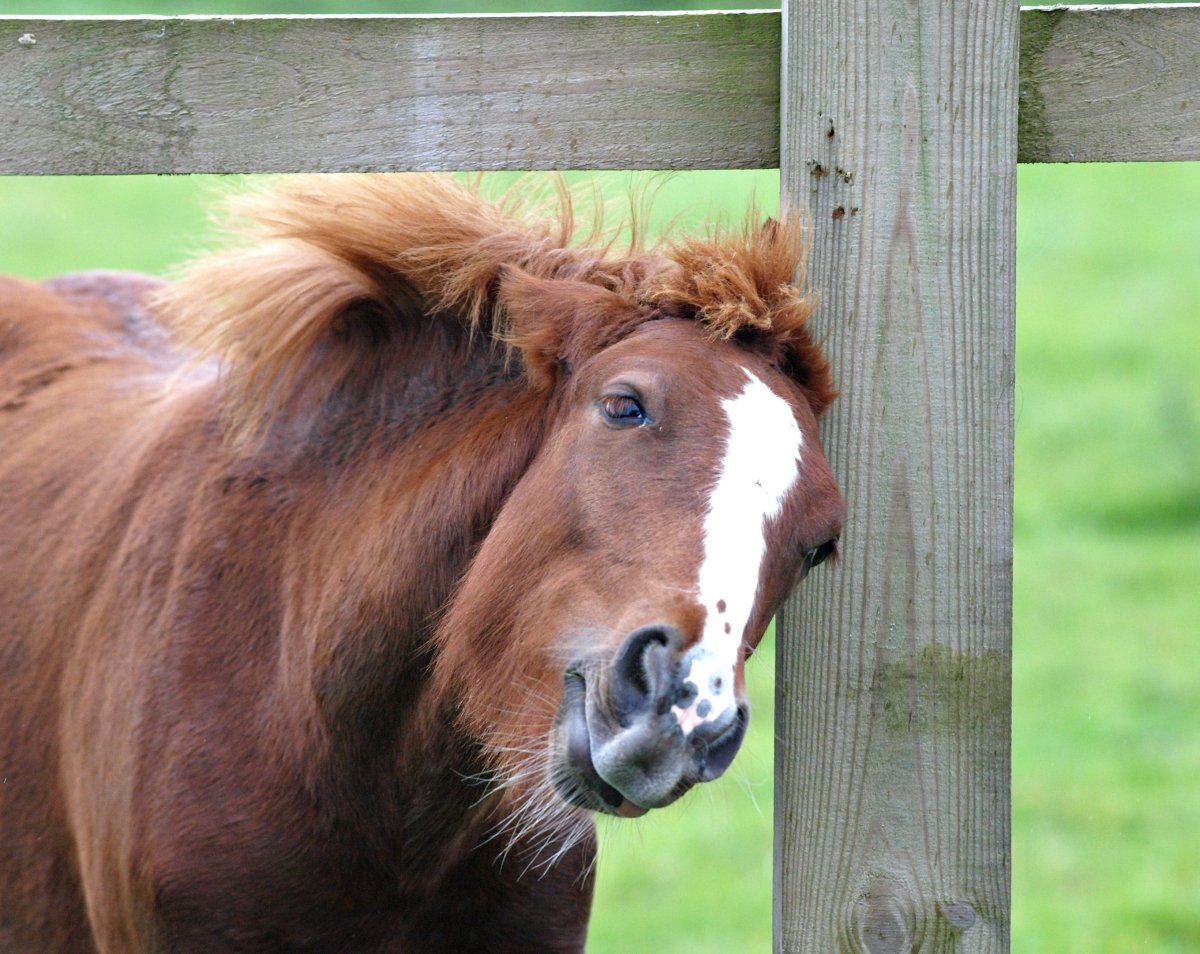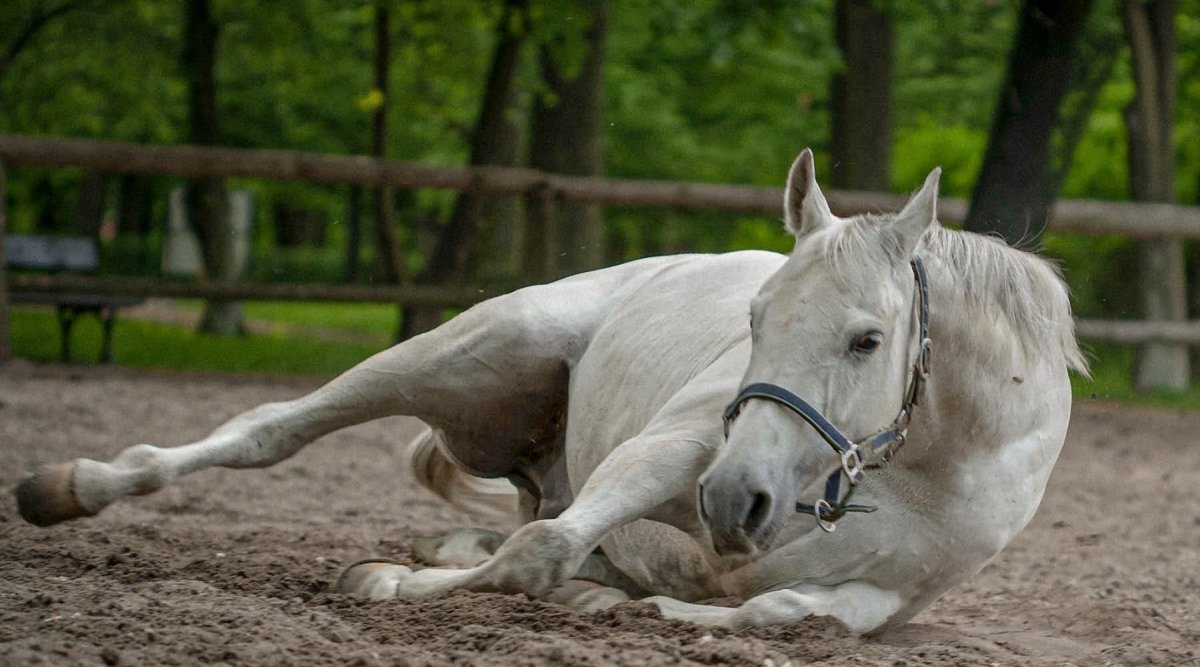What is Cushing's disease in horses?
Equine Cushing's disease is a complex hormonal disorder that imbalances the hormonal metabolism in horses. The middle part of the pituitary gland (hypophysis) is not 100% functional, which leads to reduced dopamine production in the brain. The disease remains unrecognized for a long time and can be associated with many secondary diseases such as laminitis.
Equine Cushing's syndrome: A hormonal disorder in horseswhich results in the uncontrolled release of various hormones.
Equine Cushing's is also known as Pituitary Pars Intermedia Dysfunction or PPID.
What is the cause of Cushing's disease in horses?
This disease has not yet been well researched in horses. It is not always possible to determine the exact cause.
It is assumed that the lack of dopamine causes benign tumors to grow in the pituitary gland, leading to the overproduction of hormones such as ACTH (adrenocorticotropic hormone) and cortisol. While ACTH has an influence on sugar, water and mineral metabolism, cortisol is involved in many metabolic processes and is increasingly released during stress. The hormones are also important for the regulation of other organs such as the adrenal cortex and pancreas.
If the tumor is the cause of Equine Cushing's in horses, the question then arises as to what causes the tumor. Doctors suspect that incorrect forms of husbandry such as feeding, chronic stress, lack of exercise, loneliness and insufficient or excessive demands are the triggers.
Cushing's occurs predominantly in older horses. However, the number of diagnoses of this disease has increased in recent years and younger horses are also increasingly affected.
What are the signs of Cushing's syndrome in horses?
The symptoms of Cushing's syndrome are very unspecific. The most common are hirsutism (excessive hair growth), pendulous belly and increased susceptibility to laminitis and general infectious diseases.
Many of the symptoms that occur in equine Cushing's syndrome are similar to those of equine metabolic syndrome, so that an examination and diagnosis must be carried out by a vet. A blood test to determine the ACTH level is then considered proof of Cushing's disease.
Symptoms of Cushing's disease
- Problems with shedding
- muscle loss
- Long, sometimes curly coat
- laminitis
- susceptibility to infections
- Increased drinking and urination
- Insulin resistance - Cushing's horses have an increased risk of diabetes
- Fat redistribution (pot belly)
- Light to heavy sweating
- Blindness
- fatigue
- Loss of performance
- Infertility
- Weight loss
Among the medical profession, however, voices are becoming louder that the diagnosis of Cushing's is now being made far too quickly and should be questioned more often. This is mainly due to the medication for Equine Cushing's, which is very stressful for the animal and not without side effects.
What treatment is available for Cushing's disease in horses?
As things stand today, Cushing's disease in horses cannot be cured - only the symptoms can be alleviated or even completely suppressed. The therapy should urgently be individually adapted to the horse by a vet or veterinary practitioner. The aim is to curb hormone production in the pituitary gland through the medication. As a rule, a medication is prescribed that is administered over a longer period of time or permanently.
In order to reduce the medication in the long term, holistic therapy should be used and supported with natural herbs and feed supplements. This can even reduce the amount of medication given. Early diagnosis and rapid treatment can prolong the horse's life.
In addition, the way the horse is kept must be reconsidered and possibly adapted.
Cushing's horses - natural treatment
- Feed supplements with monk's pepper and vitamin C - Monk's pepper increases the dopaminergic activity of the pituitary gland. Vitamin C has an antioxidant effect and can have a positive effect on oxidative stress.
- Encouraging exercise - Regular training sessions are beneficial for the horse and help with boredom. However, the animal must not be stressed, otherwise the symptoms may worsen.
- Weight reduction - If your horse has too much on its hips, it needs to lose weight. This increases the animal's well-being and helps with Cushing's symptoms.
- Treating laminitis - The biggest challenge with Cushing's is the development of laminitis. This significantly restricts your horse's quality of life. Therefore, always look out for possible signs of laminitis and react quickly when treating it.
Feeding recommendations from veterinary practitioners for Cushing's disease
If your horse has been diagnosed with Cushing's disease, you should consider adjusting its feed management. Energy, starch and sugar must be drastically reduced. This can be crucial during treatment.
Due to the disturbed hormone balance, many horses react to sugary feed, including fructan. The amount of fresh pasture grass and energy-rich hay should be reduced. A diet rich in crude fiber and structure with a low carbohydrate content is the optimal diet for horses with Cushing's disease.
In addition, support your horse with sufficient natural vitamins and minerals. For the supply of vitamin C, our veterinary practitioners recommend feeding rose hips. The fruits have a very high vitamin C content and also help to keep the blood vessels healthy. If your horse refuses whole fruits, you can mix rosehip powder into its feed as an alternative.

